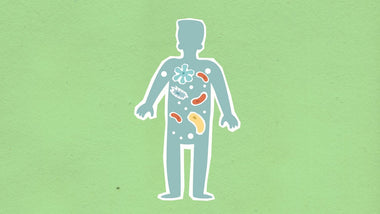Slow medicine

I’m reading a book with the same title as this blog and it has really struck a chord with me. It’s written by Dr. Victoria Sweet and chronicles her medical training in San Francisco at around the same time I entered medical school in Toronto.
Her experiences learning to become a doctor were very similar to mine. An extended apprenticeship focused on careful histories and listening to patients’ stories. Meticulous physical exams. Paper charts full of hand written notes. The pride of figuring out a diagnosis. The shame of missing something obvious. The human-ness of it all.
It’s what Sweet calls Slow Medicine.
Today we practice Fast Medicine. Electronic health records. Drop down phrases. Click and paste visits. Numeric diagnosis codes. Computer-aided decision making. Even as I’m writing this, the words sound impersonal and cold.
Don’t get me wrong. A computer reminding doctors that when they put someone on a drug like amiodarone they should monitor thyroid function - or that the patient is due for a screening colonoscopy or tetanus shot - is a good thing and helps ensure more consistent, high quality care while helping prevent mistakes.
But the stories are gone. It’s like the soul of the patient has disappeared. Entire medical records can be composed of pre-populated phrases endlessly copied from visit to visit. We are now just bits of standardized data. Even though the exact same data manifests uniquely in different patients.
The other casualty of Fast Medicine is the forgotten concept that, given time, if we just remove the obstacles, the body can heal itself. Fast Medicine sees high cholesterol and prescribes a pill. Slow medicine tries to uncover why the cholesterol is high in the first place and then removes the cause. In most instances, both approaches yield lower cholesterol numbers. But, ultimately, Slow Medicine tends to be more satisfying for both patient and practitioner – because it’s more holistic and comprehensive and tends to be accompanied by various other benefits.
Slow and Fast Medicine are not necessarily at odds with one another. They are complementary. And we often need both to optimally manage a patient. But somewhere along the way we yielded to Fast Medicine’s approach so much that the Slow got lost entirely.
Fortunately, the pendulum is starting to swing back and I'm proud to say that Step One Foods is one example of that.
Changing what you eat is a Slow Medicine approach. But the effects are not necessarily slow to materialize. To see a significant reduction in cholesterol from dietary change, all you need is 4 weeks. To see a significant change in blood sugar control, you need 3 months. To see a sustained change in weight, you might need half a year. But what’s really amazing is that all of those positive health changes are the result of the exact same intervention.
There is no Fast Medicine solution that can accomplish all of that all at once.
Pills, though effective and often necessary, are not the only approach to treatment of a chronic health condition. Which is why I always encourage patients to be better advocates for themselves. If you have a chronic health issue, next time you're in to see your provider ask what YOU can do to better manage your condition. And especially what you can do from a dietary perspective to help your other treatments work better - or reduce the need for them in the first place.
Because, given time, if we just remove the obstacles, the body can heal itself.

Tested & Proven Results.
- Cardiologist formulated
- Supported by over 500 publications
- Clinically-proven, in a double-blind randomized trial with Mayo Clinic and The University of Manitoba
80% of participants lowered their cholesterol in just 30 days. With just two servings per day, Step One Foods offers a proven-effective way to naturally lower LDL (bad) cholesterol.
Get heart health tips and articles like this, delivered right to your email.
New articles every week.
You may also like...

The Heart of the Matter: The Engine That Makes Whole-Body Health Possible

The New Food Pyramid: What It Gets Right (and What It Misses)

You don’t need to avoid foods with cholesterol…except for these


